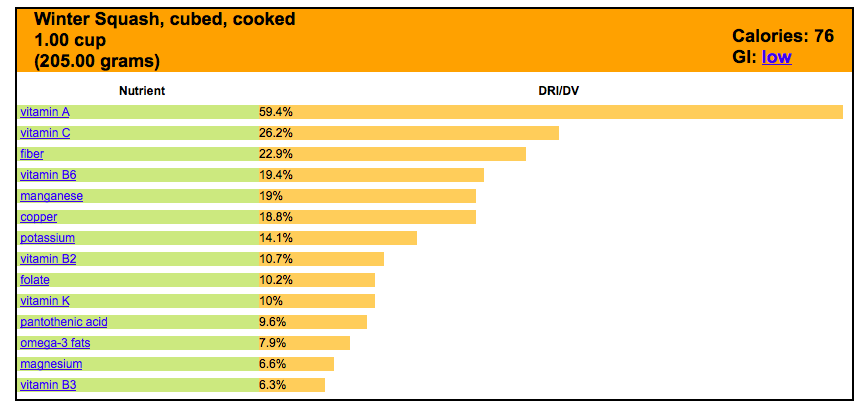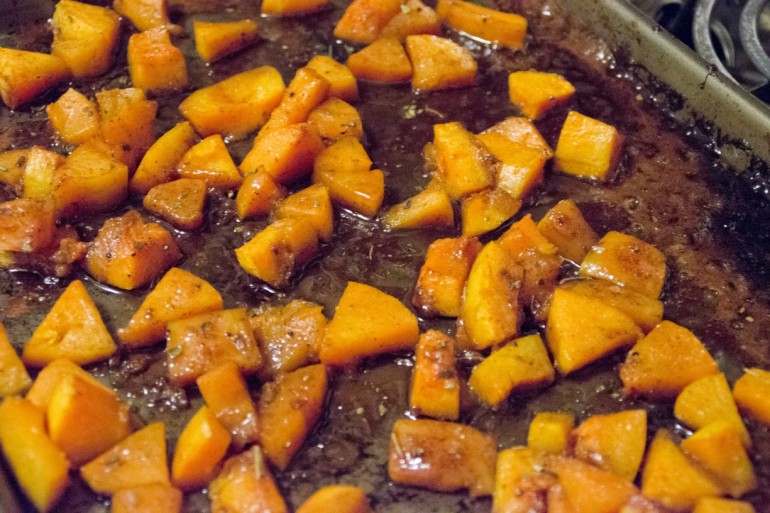Rewind to last weekend when you and your friends went pumpkin picking. You scored a few adorable ones, maybe one or two with a bulge, and placed them somewhere in your dorm room so you’d feel festive for the upcoming fall season. What if I told you that those pumpkins are actual food? Like, you can actually eat them.
Pumpkins provide us with far more than the pumpkin spice latte (which, big surprise, has no actual pumpkin in it). These mystical decorations are part of the larger squash family, and hence, can be cooked like any other member of the squash family. Squash has been ranking pretty high on my list of foods to be obsessed with recently. They are versatile, simple and full of flavor. Contrary to popular belief, you can actually enjoy the whole squash. That includes the skin, as well as the seeds and leaves.
They are also bustling with vitamins and minerals. Take the aforementioned pumpkin: one cup, cubed, has roughly 50 calories, 564 mg of potassium and a whopping 2650 IU of Vitamin A. Winter squash are also a particularly good source of folate, with one cup ringing in at about 15% of the recommended dietary allowance. Folate has a positive effect on cardiovascular health, helps maintain normal cholesterol levels and even helps the colon. Furthermore, neural tube defects have been linked with folate deficiencies throughout pregnancy.
Here is a basic breakdown of all of the goodies packed inside one generic winter squash:

Photo courtesy of: http://www.whfoods.com
Tto get the whole squash experience in the simplest way possible: Drizzle some olive oil and spices and place the squash in the oven for about 35 minutes. If you’re looking for something more creative, try making some maple roasted butternut squash or spaghetti squash egg baskets.

Photo by Becky Hughes
So now you know. Don’t squash the squash; embrace it. The leaves are turning, the brisk weather is here and you can now impress everyone with your awesome squash. May the odds be ever in your flavor.
*Fun Fact: The names “Winter” and “Summer” squash are misnomers- both types of squash grow for the majority of the year, however “winter squash” can be stored for much longer through the winter.

